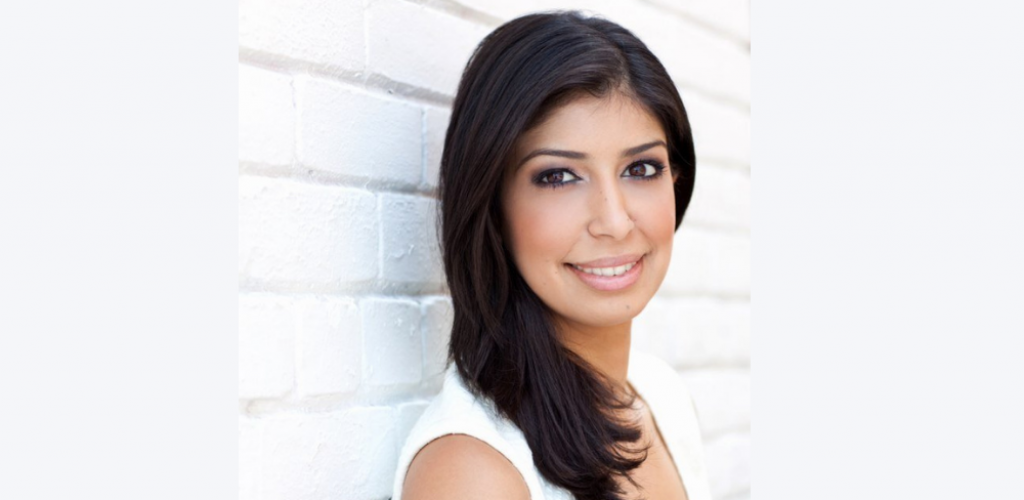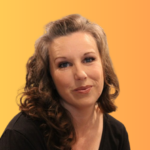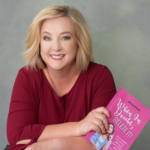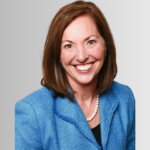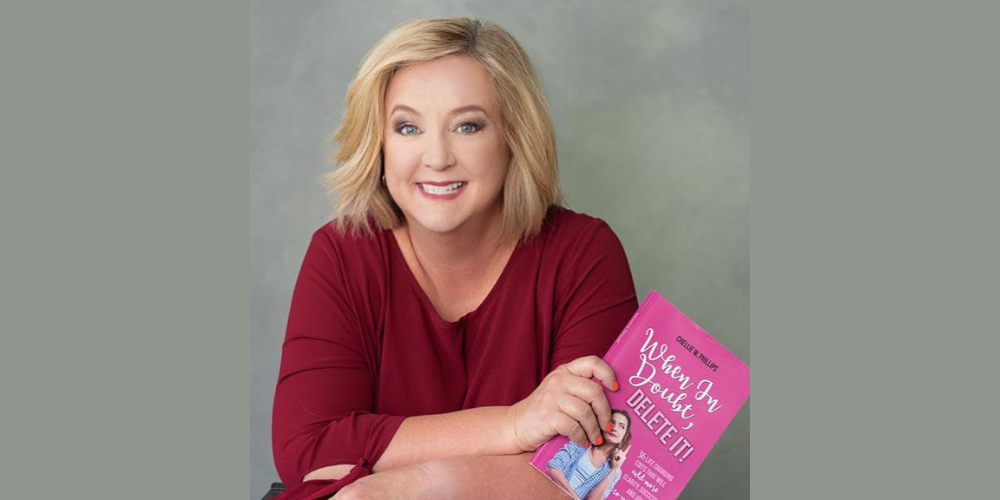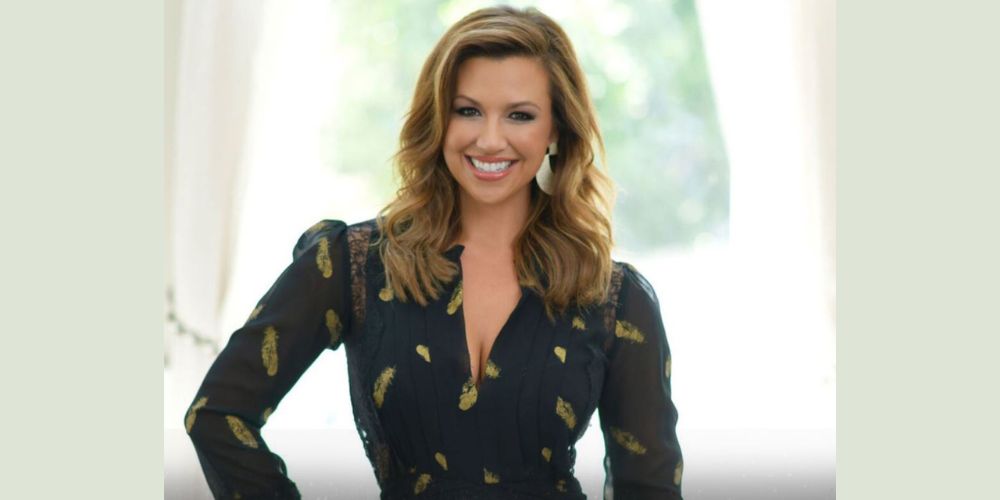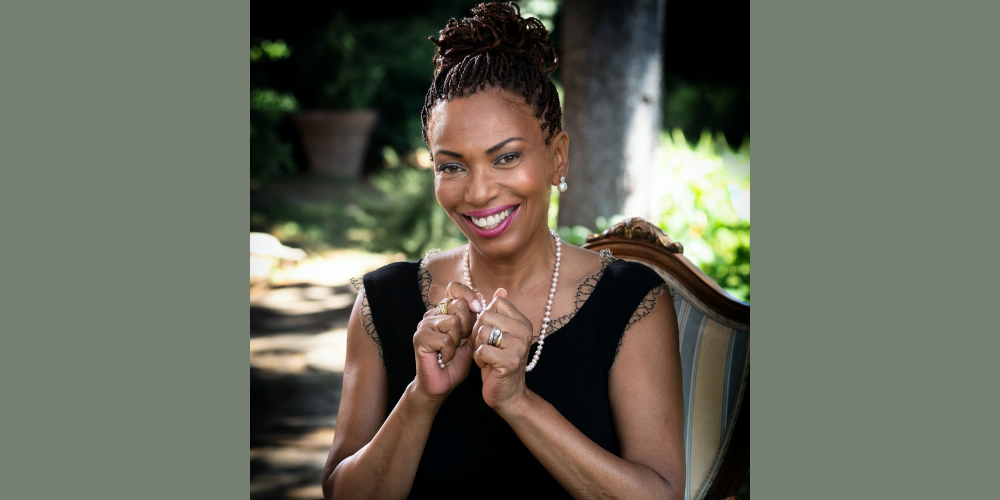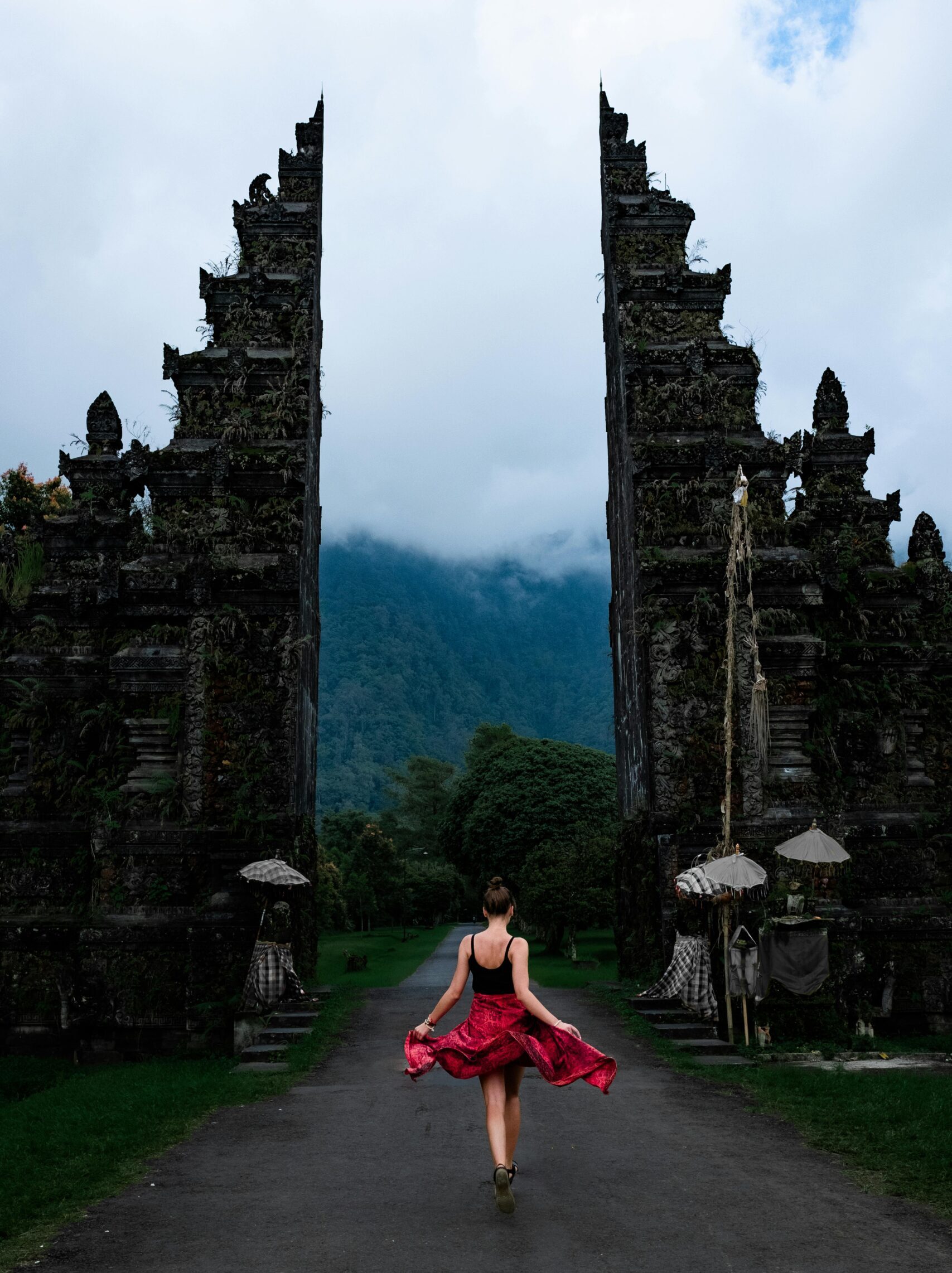Raj Girn: This week, our focus is going to be on media and communications where I’ll be chatting with multi award-winning journalist and media personality Pooja Handa in an episode entitled How to use Media to Engage People the Right Way Virtually.
Pooja’s extensive 20-year career in media has seen her anchor Canada’s number one live morning show for years on television, along with a multitude of high-profile events with tens of thousands of lives spectators. So if anyone knows anything about being super spontaneous, it’s Pooja. Currently, she is in her dream job, co-hosting her own daily radio show on CHFI which she’s basically paid to be herself.
Here is our conversation:
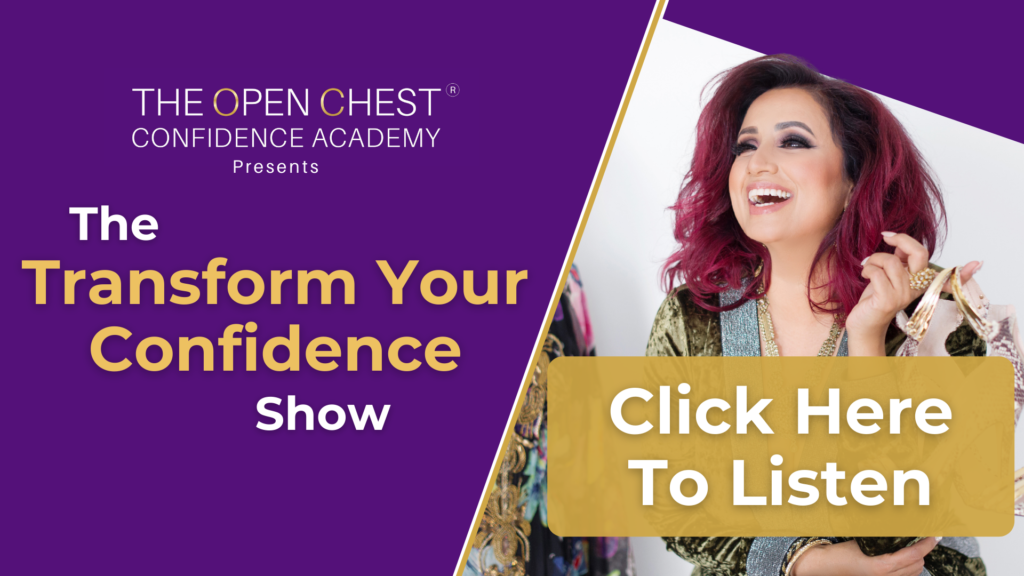
Raj Girn: Please welcome to the show my fabulous Pooja Hnda. Girl, oh to be you.
Pooja Handa: Oh, you know what? I would usually try to say something self-deprecating here. Like, No, no, but no, really I do get paid to be me and that’s the dream: to go to work every day and the only requirement is be you. Really? You sure you want to pay me to just be me?
Credit: @nitter.net/poojahandatv
Well, you’re pretty fabulous, darling. But just like most people’s stories, we start somewhere that maybe isn’t quite as fabulous when we’re trying to figure out who we are. So I want to kick things off, sweetheart, by setting some context around your career, by talking about the pre illustrious days, those days when we’re trying to figure out a personal narrative and just trying to figure out who the heck we are. Like, who did you identify as way back in the days in your formative days? Let’s kind of start there.
Well, I was really lucky because I have parents who were so supportive and very encouraging about me following my dreams. Whatever they were, they never sort of pushed me into one direction or the other. They said education was important, but everything else was to do what you want to do. And they never made me feel like being a girl meant that I couldn’t do things. They never made me feel like because I was South Asian I couldn’t do things.
“I was really lucky because I have parents who were so supportive and very encouraging about me following my dreams. Whatever they were, they never sort of pushed me into one direction or the other. They said education was important, but everything else was to do what you want to do.” ~Pooja Handa
So I think that sort of instilled a lot of confidence at a young age and I was a performer from a very young age doing dances. You know, I would do it at the temple. I used to Bollywood dance as well, and I was always sort of trying to entertain my aunties and uncles. I did impressions. I was trying to make them laugh. So I think when I told my parents I want to be an actress, nobody was surprised because my whole life was a performance. I was a drama queen of the house.
So I guess in terms of what that dialog looked like, if anything, I think it was really naive because I really just thought, well, I have the raw talent. Now I’ve just got to work on it. I’ve got to hone it to get better and things will come if I put my mind to it and I work hard it will happen. Then I grew up and learned some other things that it’s not always that simple.
It’s really interesting that you are sharing that Pooja because your dream was to be an actress, but here you are having to be yourself. That’s the career that you get paid to be today. So I’d love to bridge that gap a little bit from when you decided that you wanted to transform and go into the being someone else career to being the me career? Talk a little bit about that bridging of that gap.
Well, so I decided to move to New York City at 18 years old and my parents were fully supportive. However, I don’t think I even understood what that would mean financially. We didn’t have the money to do it. We took out some loans to try to make it happen and I couldn’t work there legally. So there was very little I could do to help the situation. And I think when I was there, I realized that it wasn’t the right time and that for whatever reason, people didn’t look like me in Hollywood and I didn’t see any representation back then at all. Like there was not even a single person I could look to to follow that career path. So I think for me, when you have constraints and they’re financial, you do have to start to rethink, what can I do? What would I be good at?
And I thought, how about this? I still get to perform in broadcast journalism, so I’ll get that part. But instead, I could tell stories. Instead, I could just be me to some extent. And that would maybe sort of fulfill that performance side of things that I’ve always sort of had in me. So I thought, why not? I’ll get the education at the same time. I’ll make my parents happy. And let’s see what happens. And in the meantime, in the backdrop, I got to see Monika Deol do what I wanted to do and write and I thought if she can do it, and she looks like me, then maybe I can do it too.

You know, it’s really interesting because we share that narrative. When I came into this country back in the early ’90s in an arranged marriage I came from England and in England things were really in that next trajectory of us really starting to be seen in in multimedia. But when I came to Canada, there was no one but Monika.
So I totally get what you’re saying there. The big surprise for me, and I know that this probably is the case for you as well, is that Monika wasn’t being anyone other than Monika, the brand before we even started talking about what branding is all about and how to create a personal brand ecosystem around you. We watched whatever she did because she was Monika Deol. You remember those days?
Oh, yes, for sure. Don’t get me wrong there were definitely other South Asians who were paving the way, which I appreciate. But she was doing something different. She wasn’t in the entertainment space, which is always a lot cooler. And she had her own style and she got to talk to celebrities and everybody wanted to be her, be around her. And it didn’t matter what your background was. It wasn’t just South Asians who were looking to her. Everybody was looking to her as an inspiration, and that was just so alluring.
Absolutely. So I wanted to ask you this then: So the road to an on-air media career wasn’t all moonlight and roses for you. You had to pay your dues first. Like people seem to look at a lot of people in the fame space, the space of the public arena, and think that they come from nowhere but it’s usually years in the making. So can you share and maybe take us back to your career aspirations and share a little bit about what that journey was like before you got that first on-air gig? What was that for you?
Well, like I said, I sort of grew up and started to realize life is not exactly, you know when you’re young and naive, how you think. And finances plays a role. Who knew? Yeah, apparently it does. That can be something that holds you back, because if you’ve got bills to pay and you want to follow your dreams, how do you do both? My parents were not in a situation where they could help me that way, so I had to work for everything while pursuing the dream. So I was still working at The Bay when I landed my first job at Global News.
So these are things you’ve got to do. And I was volunteering and all those things. So for me, a lot of the before my first gig, first paid gig in Toronto was exactly that. It was volunteering at the local radio station. It was volunteering behind the scenes. It was also working as an editorial assistant, which is sort of an entry level job. You get behind the scenes in a newsroom where you get coffee, supplies, you roll the teleprompter, you work on the floor, you do graphics, you do all the things that make a newscast except for the thing I really wanted to do, which was be on air.
And the only thing I did while all of that was going on in the background, I was practicing. I was that person in front of the mirror, and I was making my demo tape, and I was showing it to people who knew what they were doing, and they were giving me feedback like, “You could do this better” or “Work on this?” And I was genuinely working on those things.
So when the time came, when I was in the right place at the right time because I certainly wasn’t anybody’s first choice being somebody who just worked in the background, I was the second or maybe even the third choice. I was ready. And that, I think, really helped me. People talk about luck and for sure, that does play a role. But it’s when preparation meets opportunity, right? Everybody says that. And that’s exactly what happened for me.
“People talk about luck and, for sure, that does play a role. But it’s when preparation meets opportunity, right? Everybody says that. And that’s exactly what happened for me. “ ~Pooja Handa
Absolutely. So, You want to tell us a little bit about that first serious on-air gig where you thought, damn, I’ve made it, or at the very least, I’m on my way.
Oh, wow, you know what? You might find this hard to believe, but I don’t think I’ve made it. I feel like this job, the one I have now, is the closest that I’ve felt to I’ve made it because I feel like my entire career I have never been the one that the bosses thought was right for the job. I was never the first person on their mind. I was the villain. I was the let me beg and plead to let me do it and eventually, and kudos to them that they gave me those chances. When they did give me those chances, I had to prove myself.
So even when I joined CP24 Breakfast on The Morning Show Monday to Friday, well, that was a really big platform in a really big show. It still wasn’t a number one show, and so it was daunting that I was going to step into this role and try to turn this show into a number one show, which we as a team were able to do. So I would say that even that mindset of I’ve never really made it because if you’re always trying to be the best you or the best broadcaster you can be or whatever that field might be for you, then you’re never done. The work is never done.
So I can’t say that I’ve ever felt like that. But the first sort of foot in the door in Toronto was at Global News as a traffic reporter, and I remember at the time going, okay, I’m in. And now let’s see what we can do. I know nothing about traffic. I better go pick up a map book and figure it out because sometimes you got to fake it until you make it.

Absolutely, and I remember when you had that gig and you had like the sunshine personality. Now, I think that’s the key common denominator of one of your very special value systems is that you’ve just got this really sunshine personality that just makes people feel happy. Do people say that to you?
They do, and I think it’s probably because when you face adversity, I think you understand how important it is to have positivity around you. So you want to be that for other people, too. And I think that’s sort of my my situation is that you want people in your corner and you want people to lift you up and you don’t always get that. So I think I’ve always wanted to be that for people as well.
Absolutely. And you definitely have been in so many different ways, Pooja. I want to ask you something you talked off the top about: this whole idea of your parents not being typical Indian parents and helping you grow into your confident space. This is something that a lot of minority groups of every type grapple with and then you add in that layer of being a female, being a woman, right?
I know that’s not your narrative. But I know that you’ve met so many different women where that narrative has been the case, especially with you being in the position that you are. What would you say to to women that feel that there are certain things that stop them from being who they really, truly would like to be if they could? What would you say to them?
I think no matter what you do, whatever field you go into, authenticity is key. And if you can’t be your authentic self and you don’t have that passion and that drive for what you’re doing, it’s going to show, it’s going to come through and you’re never really going to find that happiness or that gratification in that role. So for parents who are like, “Oh, go into this,” pushing people into different jobs, in the end they’re not going to be happy and they’re probably going to find their way back to something that does feed that passion. Because gone are those days where it’s something you just do on the side.
“I think no matter what you do, whatever field you go into, authenticity is key. And if you can’t be your authentic self and you don’t have that passion and that drive for what you’re doing, it’s going to show, it’s going to come through, and you’re never really going to find that happiness or that gratification in that role.” ~Pooja Handa
Everybody’s got a side hustle now because they’re all sort of striving towards the path of where they really want to be. So at a young age, if you can instill in kids that it’s okay to be exactly who you are and you’re loved and accepted and this is your life, you need to go and and do what you need to do. I get to wake up every single day and love what I do. I don’t take that for granted ever. You know, it’s such a special, special thing.
Let me ask you this what is your specific “why”? Why is what you do the thing that you should be doing? Tell us why. Share that with people that are grappling with, I don’t really know what my why is. I don’t know what it is that I want to do. I don’t know how to step into my authentic self. Can you share a little bit about that for everyone?
I think that your why evolves. I think it changes all the time. I think maybe before you’re a parent, your why is one thing. And then after you become a parent, your why changes. And so I don’t think your why has to be the same. But I know for me that I was going to York University and I was going to Seneca College at the same time, doing my broadcast journalism at Seneca and then getting my degree in Women’s Studies at York. And I would go to class and at York, I did what I needed to do. I wrote the essays. It was interesting and I learned something for sure.
But then I would go to college and I would go to classes and I would spend 12 hours editing something and loved every minute of it. Like it didn’t feel like work. And I think for me, that’s my “why.” It’s I get out of bed every morning and I don’t feel like I’m going to work. Yes, it is work because it’s hard work, it’s not easy. But that feeling of I can’t believe I get paid to do this because it doesn’t feel like work. It just feels like something I love doing. I get to talk for a living. That’s usually something you save for your girlfriends and your family because they’re the only people who want to hear you talk, but nobody else does. That’s what I get to do. So I think at the end of the day, my why is just that. It feels like I’m having fun and it doesn’t feel like work.
Even though you are working really hard because you get up in the wee hours, right? What is it like 3:00 a.m.? Correct? Let’s talk a little bit about this dream job that we have right now. Let’s shamelessly plug. Tell us a little bit about why should people come and check you out talking for four hours? Is that how long this show is?
Yes, and it’s live. First of all, we play wonderful music, everything from the ’80s, ’90s, early 2000s and new music as well that we sprinkle in there. So music is medicine and there is something just so beautiful about being able to listen to some of your favorite songs and then also get some information, find out what’s happening in your city, but also laugh. You know, be able to engage with two friends. My co-host Gurdeep and I are real friends. We’ve been friends for over a decade. And really, that’s all it is. It’s us having our real friendship on air and inviting our audience to come into that and that they join us as friends would pull up a chair and join us.
And that’s what we do. We talk about things that you’re probably already talking about in your circles. We’re also being reflective of what’s happening in the world. We’ve all been going through a very challenging time in the pandemic, and it’s important to acknowledge all of that, but also be able to be that distraction, if you will, the place that people go to be able to smile and to forget about their problems for a little bit while they listen to some music and some good conversation.

I love that. How do you prepare for something like this? It’s interesting because obviously you know that I know a lot of different people in the media space. And you know, the more natural they sound, the more preparation they do right? You know, this is the case. How do you get ready for the show? I know that part of it is energy, and a part of it is making sure that you know what’s going on and being relatable. I don’t want to put words in your mouth. Talk to me a little bit about what you do. How do you bring your magic to live broadcast every single day?
You know, I think people have to find what that sweet spot is, and for me, it’s a little bit of both. Yes, definitely you have to be prepared. You have to know what you’re talking about. But the other part of it, which is also exciting, that’s the adrenaline part of things, is really not knowing what’s going to happen and being very much in the moment and present and playing off of the person across from you, which comes, I think with my acting background. I did improv for many years where it’s very much like you can’t have things in your head because you have to be there. You have to be present.
And some of the best things or stuff that happens on the show happens organically because we’re just being present. So I really feel like it’s a fine balance between both those things. But yes, coming up with all the content for four hours, which I helped do, as well as my co-hosts. And plus we have a producer between the three of us coming up with what that content is for four hours. It’s a lot. It’s got to be different. Every day you have to engage people. Everybody is doing the same content. So how do you do it in a way that is unique, that is different, and that puts our spin on it? That’s really what we’re trying to do.
Absolutely. For everyone just tuning in, I’m chatting with the one and only Pooja Handa, who outside of being a woman I genuinely and sincerely admire for all the right reasons, she’s also a very accomplished media personality with two decades in some of the biggest trenches. So she’s kind of really proven her stripes there. We’ve just finished chatting a little bit about some highlights from her journey so far.
So now I kind of want to shift gears a little bit to have her share some of her experiences so that everyone watching, listening and reading this can get her take on how to use media to engage people the right way virtually, that sore subject matter today.
Pooja, I want to ask you what you specifically do to create a connection with your radio audience, which is a whole different level of intimacy than creating a visual audio connection? Can you talk to us a little bit about what’s your secret sauce? What do you do? How do you know that you’re connected to an audience that you can’t see?
I hope I’m still still working on it and I think it will always be a work in progress. By no means have I arrived in that department. But I think I’m a very expressive person in my face and with TV, I always had the benefit of I could just make a face and people would know exactly what I was thinking and feeling. But I realize that I’m actually also very expressive in the tone of my voice and because we’re laughing pretty much throughout the entire show, I think you hear the smile in my voice too, which is really nice and my job is to paint a picture. So I think that also helps.
But at the end of the day, it’s all about believability. And I think if you are putting something on, if you’re pretending to be engaged in something, if you’re talking about something just for the sake of talking about it because you think you should, I think all those things come out and people switch the channel. They have to actually believe that what you’re talking about is something you’re interested in, you’re excited about, you have an opinion on or you have a point of view. So I think that’s really what it is. Just being very authentic to what it is that’s coming out of your mouth.
“At the end of the day, it’s all about believability, and I think if you are putting something on, if you’re pretending to be engaged in something, if you’re talking about something just for the sake of talking about it because you think you should, I think all those things come out and people switch the channel.” ~Pooja Handa
Absolutely. In your experience, you’ve learned a lot of different ways of doing this. What would you say for anyone that’s kind of new to the space, because now we’re living in a world where all business even needs to be done virtually with what’s been happening the last few years, are the three most effective tools to tap into when you’re looking to create the author or the authentic relationship that you’re talking about? Virtually like what would you say to those people that are new to the space?
Yeah, I think first of all, and I’ve been saying it throughout all of this, you just have to be yourself. That’s number one, because it is so much harder pretending to be somebody you’re not. That takes too much energy. And after a certain amount of time, the real you is going to come out. So just be you. That’s one to I think you do have to find what it is that is engaging and reflective. You have to be talking about things that people can relate to.
So no matter what it is you do, you have to be able to do it in a relatable way because as soon as somebody feels like, “oh, she doesn’t represent me” or “must be nice to have her life” or whatever it might be, they disengage. So I think there has to be a sense of, I get it. I may not have the same experiences as you. I might not see the world through the same lens, but we do share a community and we do share a space, and it’s important to tap into that space.
And what that comes with is also just doing your own work, your own homework, reading the room, having a pulse on what’s going on. If you understand that people have lost their businesses, have lost their jobs, mental illnesses is a huge issue right now as people grapple with their mental health. If you’re not understanding all of those things when you take on any topic, then you’re tone deaf, essentially, right? So it is important to also have your finger on what is happening so you can be reflective of that.
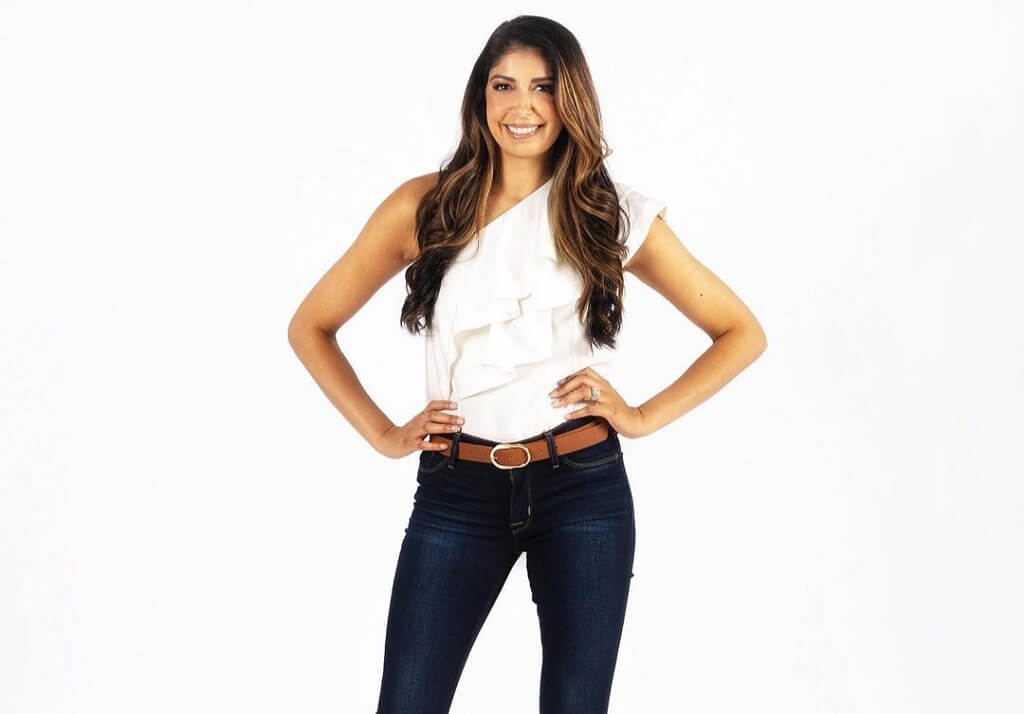
And I think finally, you do just have to be passionate about it because if you’re not, again, that is going to show. Don’t talk about something or don’t decide this is my brand because people tell you that’s what your brand should be. It should be what it is that you are passionate about or what you want to put out there. It’s amazing to me how I often see people on social media who are . . . let’s let’s say fitness is their thing and they do everything about fitness. And I’m like that’s the thing. That’s what brings people there.
That’s your brand and that’s what you love. But here we are talking about all these other things. It doesn’t mean you can’t be multifaceted, but it’s also important to understand why people come to you, what that brand is and to feed that so you are engaging your audience. And it’s a give and take because you can’t just give them stuff and then be like, my job’s done here. So much of engagement is actually engaging. There has to be a back and forth.
Absolutely. I completely agree with that. For those people out there again who are trying to figure out their personal brand in a virtual environment to really engage and to humanize what it is that they’re trying to portray out there, what have you seen through social media and all the other ways that you feel are absolute no nos? What should people stay away from in your opinion?
I think when you are acting, people know. So a lot of that goes on, especially because we live in a world where we are consuming videos, whether it’s TikTok or reels or in your stories, people pull up a camera and want to tell you about your day. If you are putting on a performance, if it took you 25 takes before you posted the story, it’s probably not really you. And I say, be you, umms uhs and all the flaws. All those things, you get better at that. So don’t even worry about that part.
The more you do it, you’ll get better at it. But just be you. Don’t put on a performance because you think that’s what you’re supposed to do. And I see that a lot, and as soon as I do I don’t believe you, I’m disconnected. So I think it’s very important to just be you, and you don’t have to worry about all the rest kind of thing. Some don’t. I also think that I’m, I’m going to be very honest, I love me a good filter. Don’t get me wrong. Love me a good filter. And I love to be able to touch up my photos and make them look great. But if you’re always doing that, if you’re always somebody who is showing up on social media as someone who’s perfect and you have a perfect life, that is also not true, probably, but also not relatable.
Like, I like to see pores on people’s faces because then when I look in the mirror, I go, well, it’s okay that I have pores on my face. I think those things are important. It’s okay to curate your whatever that might be, because ultimately this is your website. This is sort of how you’re you’re selling yourself. That’s okay. But you do have to also have parts of you that are not perfect and that are real sprinkled in there, too. So people know you’re human.
Absolutely. Who out there do you think gets that right other than you, of course?
I don’t know that I get it right fully.
I feel you do. I think because I’ve known you for many years and I can say this very truly and honestly, I know the person you are in front of the camera and behind the camera and you’re the same person, sweetheart. I can say this. So for someone who understands that, but maybe doesn’t consciously know that she does that and that is to be herself. Can you share that a little bit who out there do you feel gets this right?
Tracy Moore, host of City Line, gets it. She absolutely gets it. And you believe her every time. You know she is somebody who will show up. She posts every single day, but you never know what you’re going to get. Sometimes you get fashion, sometimes you get a really serious take on something. Whatever you get from her, it’s real and she keeps it real the whole time, and she’s got a huge following. She’s not pretending. And as somebody who’s also met her in real life, many times, she’s the same person. So I think she does a very good job.
And plus the engagement is unbelievable. She comments on every single one of my posts, every single time. And we’re all busy. There’s no way you can comment on everybody all the time. But she does this with everyone. And I think that there is something to be said about if you’re taking on social media, it’s a job too. So you have to treat it like a job. You have to dedicate time and energy. Maybe it’s a short amount of time. Maybe it’s every day for two hours. It’s my social media time. That’s fine, too. But there has to be some sort of strategic part to making sure that you are feeding the brand and that you are engaging with your audience and that you’re there for them because if you’re not, they’ll find somebody else.
“If you’re taking on social media, it’s a job too. So you have to treat it like a job. You have to dedicate time and energy. Maybe it’s a short amount of time. Maybe it’s every day for two hours. That’s fine, too. But there has to be some sort of strategic part to making sure that you are feeding the brand and that you are engaging with your audience and that you’re there for them because if you’re not, they’ll find somebody else.” ~Pooja Handa
Absolutely. As we get ready to wrap up. I cannot believe we’re almost over. I want to ask you this: For anyone that pooh-poohs the value of media to be able to tap into audiences to find people who are the right people to be a part of their community, what would you say to them?
Oh, well, I would say never underestimate the power of media. And I think for me, when I was younger, I had no idea that going into this field came with power. I had no idea that it would mean so much having a seat at the table and being able to make those decisions, especially being South Asian. I was young and naive. I didn’t know that these things were important. So that’s one thing. You have a seat at the table. You have to use it. You have to use that platform, but also the way people can show up for you. You talk about that community, it’s real. It can also be a horrible place.
Sometimes it can also be that. But if you look at some of the positive stories of what social media and what media in general can do, whether it’s a business, people don’t even have websites anymore, right? They put everything on their social media because you get everything there. There’s so much value in that, and those people will continue to show up for you through your life and the evolution of where you go.
So I had given the the fitness example off the top there, but maybe you started as a fitness expert. And then you wrote a book or you moved into something else, that same group of people that has been there, that you’ve taken the time to engage with and you’ve given them your part of things with your brand, what you deliver and they’ve given you something back. They’re going to follow you through your career and they’ll support you through everything. So do not pooh-pooh media of any kind in any way.

Absolutely. And especially today, when you yourself are a media company, there’s never been a time when that power has ever been in the hands of the everyday person. I want to ask you this: Is there anything that you feel that I haven’t talked about, that you feel that you’d like to share before we close off?
Oh my goodness, you and your great questions. This is why you do this so well. You ask the best questions. You’re the most engaging. You’re so good at what you do. So I love you. You did a great job. And I think the only thing I will say in all of this is that this is a really tough time for a lot of people. And I think that no matter what you’re doing, doing it authentically or whatever that might be. Kindness is such a big part of your journey, and it should be because you never know what other people are going through. And I think that’s something that people should keep in mind. No matter what sort of information or content or whatever it is that you’re putting out there, please have a lens of kindness when you do so.
“Kindness is such a big part of your journey, and it should be because you never know what other people are going through. And I think that’s something that people should keep in mind. No matter what sort of information or content or whatever it is that you’re putting out there, please have a lens of kindness when you do so.” ~Pooja Handa
Amen to that, babe. Amen to that. I completely agree. The other part of that is that pain, trauma and challenges are all relative to the experiences that you as an individual have to face in your life. So everyone’s experience with that is equally, as you know, dramatic for them, as it is for anyone else. I feel that’s the other piece to this as well. Pooja, how can people go and check out your morning show every single day? Can you let people know?
Yes, please tune in to 98.1 CHFI on the radio or on your smartphone. You can get the Radio Player Canada app and you can listen that way or on your smart speaker. Just get Alexa to play 98.1 CHFI and you can listen from 5 a.m. to 9 a.m. every single day.
And if they want to hang out with you on social media, where do they need to go?
So my handles are @poojahTV. I should really work on turning it into radio, but I still do TV. So you will also see me on Breakfast Television and on City Line and very soon on TSC as well.
Thank you so much, darling. I absolutely love you. I feel like I need you to come back on and talk a little bit about how to use comedy in media, because I don’t think anyone’s quite done that as well as you for as long as you. Will you come back on?
For sure and you got to keep it PG 13. Don’t forget that.
That’s the hardest part isnt it?
Yes, that was the most difficult part because how do you have an audience that laughs at everything you put out there has to be sort of professional and safe and you can’t offend anybody, but you still have to make them laugh. It’s easier said than done.
Well, thank God, it’s you that does that job not me. That’s all I have to say that scaling it in by itself is something that very few people have really mastered the way you have, sweetheart. I really appreciate you. Thank you so much for coming on. The big takeaway from this conversation for me is really this whole idea of not getting so confused and wrapped up in the rabbit hole of the who and what and why. But staying true to who you are and making sure that who you are has a place of relevancy in the world that we live in. That really is the big takeaway I’ve gotten from everything that you’ve talked about. Thank you so much for sharing your authenticity formula with everyone. And I can’t wait to have you back on.
I can’t wait until you invite be back. Thanks, Raj.
Thank you so much, sweetheart. Guys. I really hope that you got some real value, and I hope that you share this episode with anyone out there that you feel really needs to hear and sit with a lot of what we’ve been talking about.
You already know how to stay in touch with me and my world. Go to The Open Chest Confidence Academy’s YouTube channel, as well as on socials. Go and check out the show on podcast platforms The Transform Your Confidence Show and go read the blog at TheOpenChestConfidenceAcademy.com/media/podcast, and I look forward to seeing you again next week when we’ll be talking about branding and marketing. Take care of yourselves.



